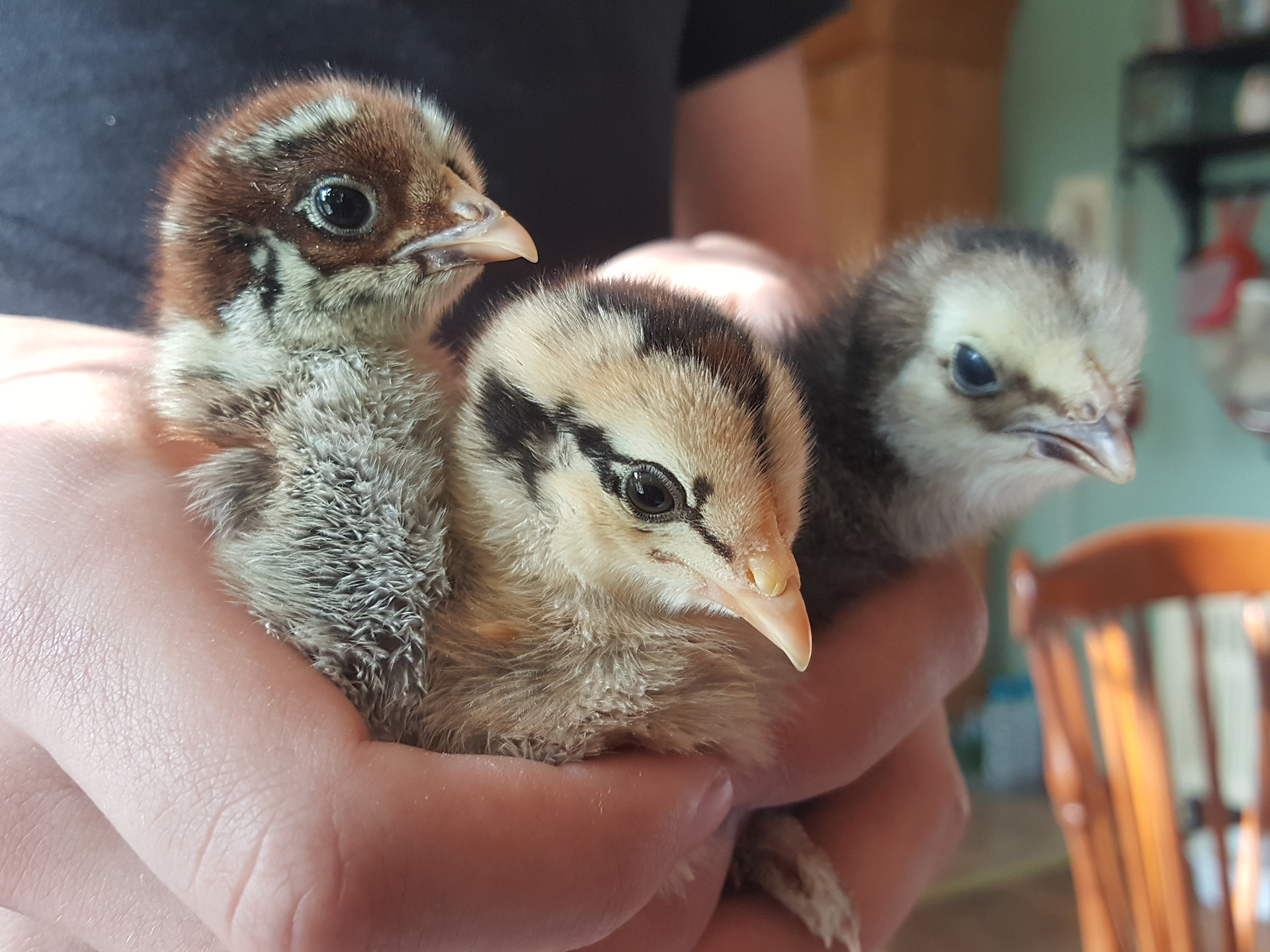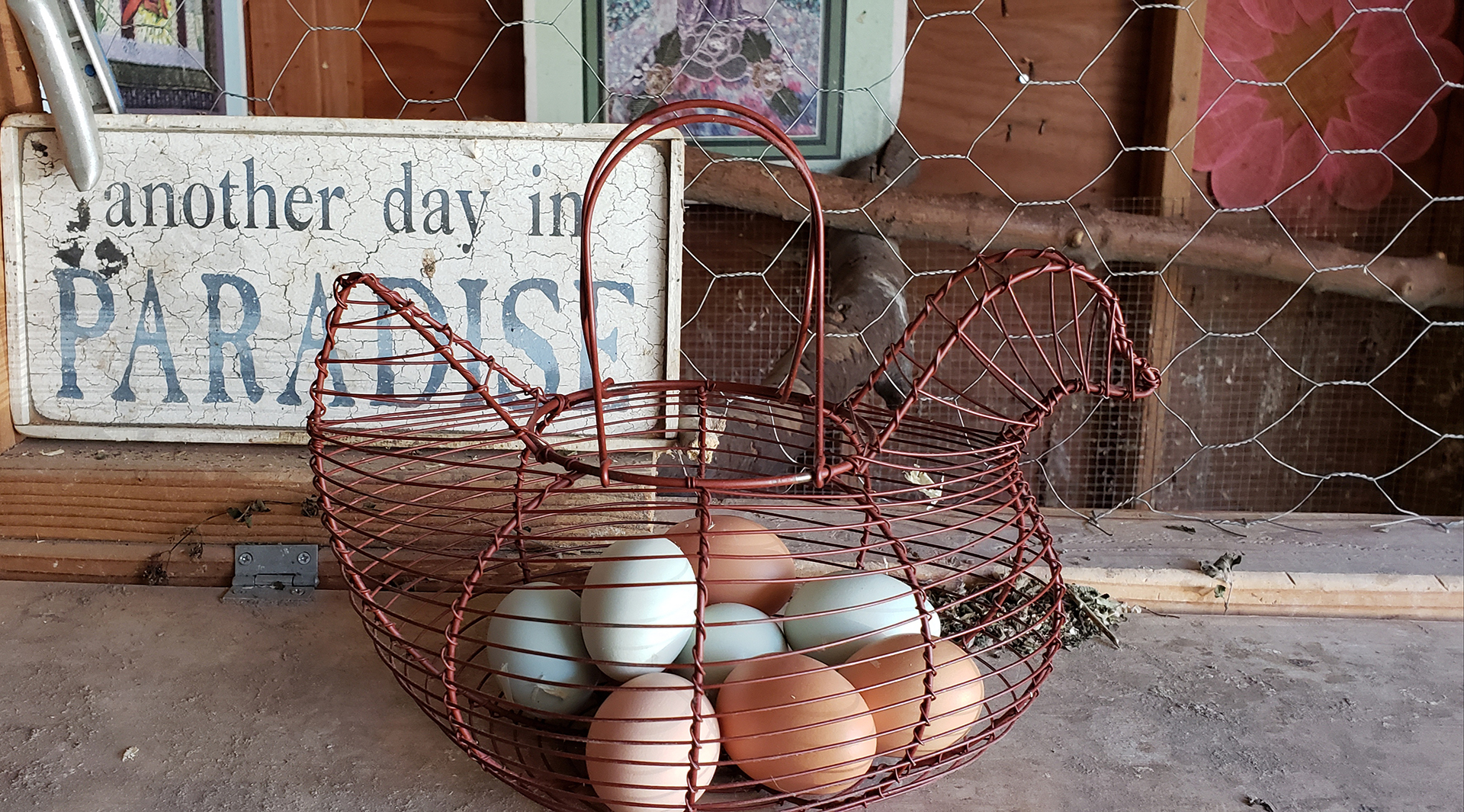Homesteading Series: Chicken Love

Part III in a series on self-sufficiency, which includes vegetable and herb gardening, resources for newbies, taking care of animals, composting, pollinators, and more.
Having a pet that poops breakfast may be the greatest investment in food security you can make, plus chickens provide compost for your garden, eat bugs and kitchen scraps, and are fun to watch.
If you haven’t owned chickens, here’s some things to know right off the bat.
First, you don’t need a rooster for your chickens to lay eggs. They lay about once every 24 hours or so, less in the winter, regardless of whether there’s a man around the house. Your neighbors will thank you for that bit of information.
The best way to assure the “no rooster” clause is to buy pullets — the equivalent of teenage chickens that have been properly sexed, which sounds like a lot more fun than it actually is. But even then, you can sometimes end up with a “pullet surprise,” and I don’t mean the kind you get for writing an award-winning novel. (I’ve been waiting to use that pun forever.)
Be aware, if you buy “straight run” baby chicks, it means you don’t know who will lay and who will crow.

Second, chickens are tasty. Not just to people, but to predators. So, if you decide to own chickens, no matter how carefully you coop them, prepare for some casualties — it is, unfortunately, part of farm life.
Third, check your town code carefully. Some townships allow only three chickens, which is challenging, since most places only sell a minimum of half a dozen, but you could split an order with a neighbor.
Once you have chickens though, you may find yourself a victim of what poultry hobbyists call “chicken math” — you’re never quite sure how many you have. Not inciting anarchy here, but if you don’t have a rooster and you keep your pen clean, and you have a large backyard, it’s unlikely the chicken police are going to come and haul you off to chicken jail. Sharing your henfruit with those on the other side of the fence will gain you some points, too.
Fourth, do your research. Some breeds of chickens do better in hot weather, some in cool. Some tend to go broody (think false pregnancy), some don’t lay all winter, some are friendlier, some lay different color eggs (the chicken “mutt” called the Easter Egger is a popular breed). A fun quiz on what kind of chicken is right for you, with lots of information about breeds, can be found at www.mypetchicken.com.
Fifth, buy locally if possible. Wayne Meyer of Long Island Poultry in Calverton is a great resource.
“Business is booming,” he said. “We quadrupled our business in the past four weeks,” during what is usually a busy time anyway. When asked if there are any first-time chicken purchasers, he said, “Lots. We’re selling out daily.”

His sage words of advice for anyone thinking about owning chickens?
“Don’t impulse buy,” he said. “Make sure you are ready for the commitment.”
More information can be found at www.longislandpoultry.net.
A popular chicken blogger, Kathy Shea Mormino, manages www.the-chicken-chick.com, with ideas on everything from coop building and cleaning to feed and treats to medical issues.
For answers and advice, plus other local resources, the Facebook page Long Island Homesteading Forum previously profiled in this series is full of local chicken owners who can share their knowledge.
bridget@indyeastend.com




